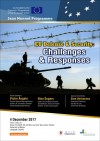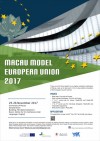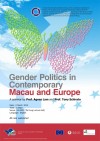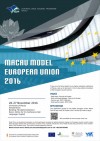
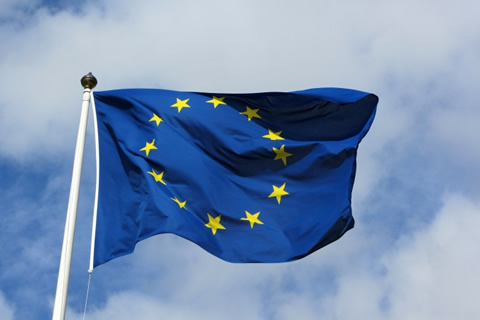 The EU is a unique economic and political partnership between 28 Member States that together cover much of the European continent.
The EU is a unique economic and political partnership between 28 Member States that together cover much of the European continent.
The history of the EU begins in the aftermath of the Second World War and the first steps for its creation were to foster economic cooperation: the idea being that countries which trade with one another become economically interdependent and so more likely to avoid conflict. The result was the European Economic Community (EEC), created in 1958, and initially increasing economic cooperation between six countries: Belgium, Germany, France, Italy, Luxembourg and the Netherlands. Since then, a huge single market has been created and continues to develop towards its full potential.
Since its creation, the EU has delivered more than 60 years of peace, stability, and prosperity to the continent. In recognition of this achievement, the EU was awarded the 2012 Nobel Peace Prize.
What began as a purely economic union has evolved into an organisation spanning policy areas, from development aid to environmental protection. A name change from the EEC to the European Union (EU) in 1993 reflected this expansion.
The EU is based on the rule of law: everything that the EU does is founded on treaties, voluntarily and democratically agreed by all member countries. These binding agreements set out the EU's goals in its many areas of activity.
The EU has delivered half a century of peace, stability and prosperity, helped raise living standards, and launched a single European currency, the euro.
Thanks to the abolition of border controls between EU countries, people can travel freely throughout most of the continent. And it's become much easier to live and work abroad in Europe.
The single or 'internal' market is the EU's main economic engine, enabling most goods, services, money and people to move freely. Another key objective is to develop this huge resource to ensure that Europeans can draw the maximum benefit from it.
One of the EU’s main goals is to promote human rights both internally and around the world. Human dignity, freedom, democracy, equality, the rule of law and respect for human rights: these are the core values of the EU. Since the 2009 signing of the Treaty of Lisbon, the EU's Charter of Fundamental Rights brings all these rights together in a single document. The EU's institutions are legally bound to uphold them, as are EU governments whenever they apply EU law.
With €56.2 billion of official development assistance made available in 2013, the European institutions and 28 EU countries together provided for more than half of global official aid, making it the biggest aid donor in the world. The EU is also involved in other areas that support development and reduce poverty, such as peacekeeping, election observing, and providing humanitarian and reconstruction aid in the wake of natural disasters and conflict.
As it continues to grow, the EU remains focused on making its governing institutions more transparent and democratic. More powers are being given to the directly elected European Parliament, while national parliaments are being given a greater role, working alongside the European institutions. In turn, European citizens have an ever-increasing number of channels for taking part in the political process.
;
EU DEFENSE AND SECURITY: CHALLENGES AND RESPONSES In a time of numerous global threats such as terrorism, armed conflicts or uncontrolled mass migrations, how to protect MACAU MODEL EUROPEAN UNION 2017 If you are a full-time student in any higher education institutions of Macau, sign up to take part in this 2-day EUAP-M MARKS INTERNATIONAL WOMEN’S DAY WITH A TALK ON GENDER POLITICS To celebrate the International Women’s Day, the European Union Academic Programme in Macao (EUAP-M) organizes on 4 CALL FOR APPLICATION FOR FELLOWSHIP PROGRAMME FOR VISITING SCHOLARS OF EUROPEAN UNION STUDIES AT THE UNIVERSITY OF MACAU IN ACADEMIC YEAR 2015 – 2016 The European Union Academic Programme in Macao (EUAP-Macao) invites applications for the fellowship programme for CALL FOR APPLICATION FOR FELLOWSHIPS FOR ENHANCEMENT OF TEACHING AND RESEARCH ON THE EU STUDIES IN ACADEMIC YEAR 2015 - 2016: The European Union Academic Programme in Macao (EUAP-Macao) invites applications for the fellowship programme for MACAU MODEL EUROPEAN UNION 2016: CALL FOR APPLICATIONS The Model European Union is back to the University of Macau!
If you are a full-time student in any of the higher